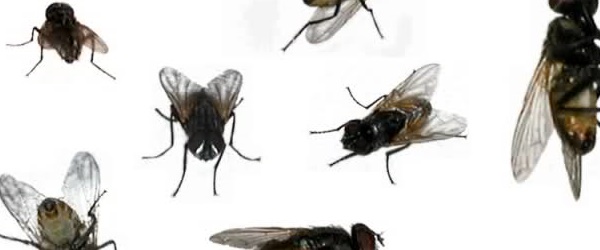
{FICTION} Fire Flies — a story of fly infestation
Fiction, LiteratureBy Alex Gordon
I have flies. Behind my curtains they buzz and bump against the window towards sheets of bright concrete, clumsy and blind convections like entropy. The hourlong genocides prove futile, as every morning finds them reemerging with fresh numbers. Not vigorously though, they’re lethargic and accepting of swat. I’ll kill thirty in a single sitting. Then the vacuuming and the satisfying crunching noise. There are smudges and stains smeared up and down the walls and windows, some with hardened fly-legs fixed to the stain, the cleaning of which can only be described as Sisyphean.
‘They’ll die when it gets cold,’ I’m told, discouraging advice. Weather is unreliable and basic flysense finds me waiting, waiting it out. There are sanitation improvements to be made in the meantime, cleaner counters and better smelling trash, kept outside, apples thrown out before getting spongy, to eradicate their foodstuffs. They had a good run. Three generations (estimated) of uninterrupted prosperity spawned by the odorous bullhorn of a forgotten trash bag and a hot three day weekend.
A fly, dead but unmashed, is a very pretty thing: the rusty metallic shade of a dull dark green torso, the dainty, incomprehensible dimensions of their legs and the follicles that comb up their knees like rungs on half a warped ladder, the artsy intricacies of their wings, their tiny heads.
A moment of scientific curiosity ends with the hiss of butane and a spark of flint, in an instant drenching the fly and sending it into flames, up into the air for a brief but illustrious final flight, its wings and legs burning up like singed eye lashes, its brain-goo brought to instantaneous boil, its buzz elevating to an agonizing register, before plummeting to the carpet in a smoldered fireball.
Nose-hairs of apartment guests are bombarded at entrance, a bizarre mix of stale produce and burnt plastic. ‘Has something died beneath the floorboards? Have you been cooking rubber bands?’ No, it’s the smell of burnt flies, thank you for noticing.
With practice my technique becomes surgical. Sparking the flint with index instead of thumb; isolating the fly behind a curtain, against a window; patience; getting out of the way once it’s caught fire. Guilt over the sadistic nature of the extermination method and fear that blazing flies will set my home on fire, these are stifled emotions. I deserve to have a house without flies. Whatever it takes.
An excessively large fly on fire flies from the front window to my bedroom in an impressive and record-breaking swan song (flight), crashing into the back window and landing squarely on the sill, hissing. It sets off the smoke detectors, whose alarms are more frantic than usual, seemingly traumatized by the taste of flysmoke. The big fly is dead, wingless and legless, emitting a charred musk that makes my nostrils thumb-wrestle. I stare for a while watching the single thread of smoke drizzle up and out of his midsection and I say a little prayer.
Swept into the trashbin, the smoldering fly coughs up a tiny ember on what I imagine is some sort of tissue or newspaper, igniting it in quiet pops and crackles, and then, rather suddenly gaining confidence it sweeps upward heroically, enveloping in flame every inch of cardboard, plastic, rubber, paper and organic material, like fly corpses, and finally the trash bag itself, whose blast of chemical juices twist the flames into tropical blues and exotic greens, setting my dual smoke alarms into an indignant, raging shouting match whose subject is likely the dazzling six-foot fire shooting out of the trash can in my kitchen.
In shock I swing the back door open, run to the kitchen, grab the flaming trashcan with oven mitts, and, with my face tucked into my armpit, shuffle along the carpet to the door and thrust the emblazoned carcass onto the concrete yard, the shrieking smoke alarms looking on in horror. It lands heavy like a bomb and my oven mitts catch on fire so I flail my arms, shooting them like flaming high-fives into the neighbors’ yards. I feverishly pat my head down to ensure it’s not on fire, then start flattening refugee embers on the carpet, stomping the way you might stomp if you were trying to break your knees.
The plastic bin is now engorged, its skin wrinkled and stinky and hacking black plumes into the air, but it’s burning on the concrete safely, or safe-ishly, so I turn off the smoke alarms and call the firemen. I’ve lost some hair on my knuckles, small portions from the top of my head and some arm-hair I had grown fond of. I sit down to catch my breath and wait for the authorities, watching the fire from the stump of my backdoor.
The distinct sections that once burned with so much character are now amorphous and scarcely resemble the contents of a trash bin, or the bin itself. I hear sirens. It’s dark and it’s cold and it’s windy and it would smell like winter if it didn’t already smell like so many other things, burnt and burning. The wind drags the embers all across the concrete, and up into the air, orange bodies aimless against dark blue; it shreds scraps of paper with singeing edges and drops them in drainage pipes and kiddie pools; it whists dismembered glowing detritus over my head towards cloudy invisible stars, suspending them in the air like flies on fire.
























[…] short fiction, Fire Flies — a story of fly infestation, “its buzz elevating to an agonizing register, before plummeting to the carpet in a smoldered […]